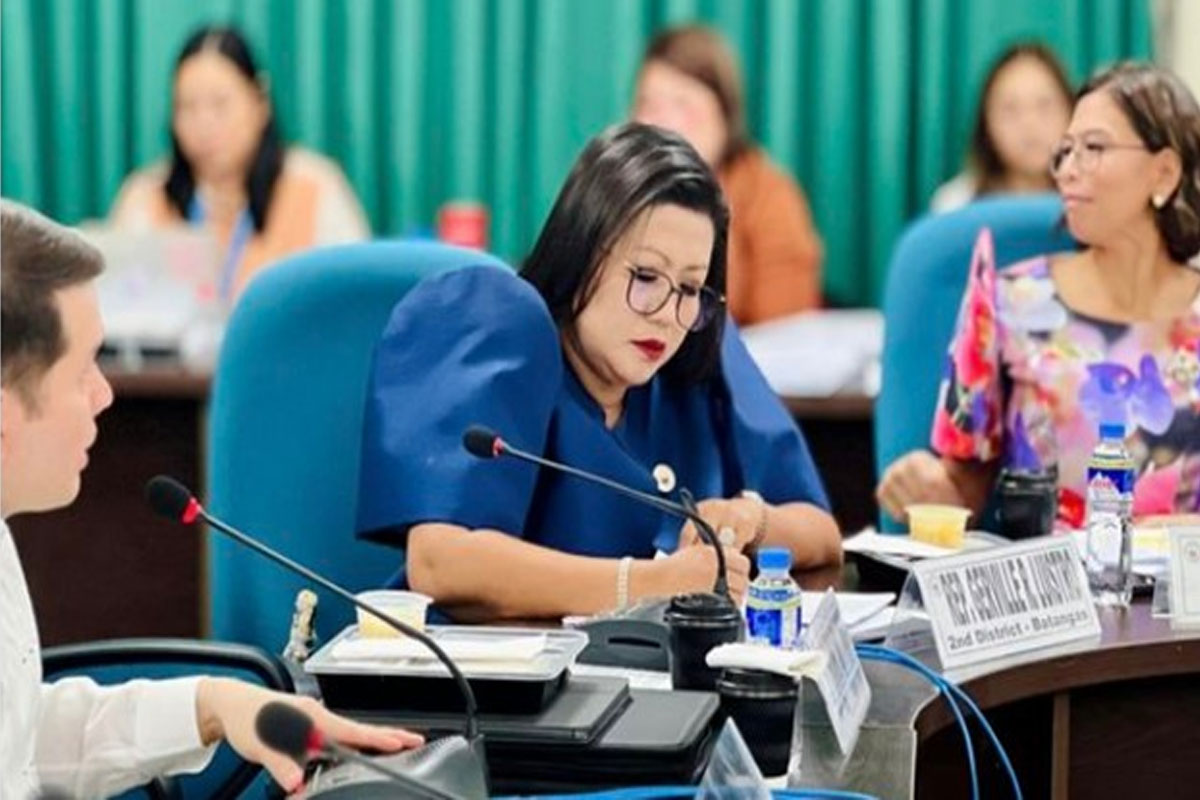
House body OKs LGU automatic income classification
THE House Committee on Local Government chaired by Valenzuela City 1st District Representative Rex Gatchalian has approved the measure seeking to institutionalize the automatic income classification of provinces, cities, and municipalities to boost the operation of local government units (LGUs) and bring about much-needed socio-economic benefits to local government personnel.
The Automatic Classification Act for LGUs is a consolidation of Gatchalian’s House Bill (HB) No. 5290, HB 1817 of Siquijor Rep. Zaldy Villa, and HB 6121 of Sorsogon 2nd District Rep. Wowo Fortes.
During deliberations, the authors pointed out that the last income reclassification of provinces, cities, and municipalities was done in 2008 to the detriment of the LGUs and their personnel.
Executive Order (EO) No. 249, series of 1987, which provides for the income classification of LGUS, authorizes the “Secretary of Finance… to review the income ranges, at least once every four years, and recommend such appropriate changes or revisions.”
However, in 2012, the Department of Justice (DOJ) opined and emphasized that the Secretary of Finance merely has a “recommending authority” in making changes or revisions in the income classifications of LGUs.
This resulted in the suspension of the income reclassifications in 2012 and the succeeding cycles.
Gatchalian said that after 14 years since the last income reclassification in 2008, the income classifications of LGUs “extremely deviate” from the prevailing economic conditions and the overall financial status of LGUs.
“The income classification of LGUS serves, among other purposes, as [the] basis for fixing the maximum tax ceilings imposable by the local governments; for determining administrative and statutory aids, financial grants and other forms of assistance to local governments; the determination of the financial capability of local government units to undertake developmental programs and priority projects; and for the implementation of salary laws and administrative issuances on allowances and emoluments that local government officials and personnel may be entitled to,” Gatchalian, the panel chairman explained.
“Dahil luma ang ginagamit na income classification, malaki ang repercussions nito in the operation of LGUs. The moratorium not only impaired the capability of LGUs to undertake developmental programs and priority projects for their constituents but also adversely impacted their ability to institute compensation adjustments for LGU personnel as provided under the Salary Standardization Law (SSL) of 2015,” Gatchalian said.
He said the passage of the proposed measure is needed “to fix the deficiencies in the Local Government Code to ensure that the LGUs remain dynamic and consistent.”
“By instituting the Automatic Income Classification Act, we are now paving the way for local government personnel to receive the increase in their pay scale or salary grades that they rightfully deserve and empower them economically amid these trying times. This also paves the way for LGUs to hire additional personnel in boosting its services to their constituents,” Gatchalian said.
“With better salary grades, the local government can attract more talents to work in the LGU that will cater to the growing needs of the community,” he added.
Villa agreed with Gatchalian, citing his experience as former governor of Siquijor.
“During my term as governor, Siquijor was ready to be reclassified from a 3rd Class province to a 2nd Class province. But this could not be done because of the moratorium,” he said.
“We need to pass this measure as a means of empowering the LGU in terms of governance and improving its services to its constituents,” Villa said.
Fortes, meanwhile, said the passage of the measure is very important, pointing out that the DOJ has expressly emphasized that a law needs to be enacted to provide income classification of LGUs.
“The Bureau of Local Government Finance (of the Department of Finance) needs to modify income ranges so that a more accurate reclassification of LGUs would be made,” Fortes said.
Gatchalian also proposed that automatic income reclassification of LGUs should be made every two years “to accurately capture the different economic activities in the different LGUs.”
While this was met with approval by all lawmakers present, Fortes proposed that there should be no downgrading in the initial reclassification so that “all LGUs may reap the full benefits of the income reclassification.”
Additionally, Rizal 3rd District Rep. Jose Arturo Garcia Jr., the committee’s vice-chair, proposed that when the two-year cycle for automatic income reclassification is made, LGUs who are to be downgraded should be given another cycle to make up for their income status.
“While downgrading of classification is very rare, the LGU should be given another two years to catch up,” Garcia said.
Sarangani Rep. Steve Chongbian Solon, who also sits as vice-chair of the panel, also proposed that while the BGLF and the DOF are studying the updated income classifications, “there should be no diminution of salaries and incentives of LGU personnel” in LGUs being considered for downgrading.
Gatchalian moved to incorporate these proposals in the substitute bill “subject to style.”
The proposed Automatic Classification Act for LGUs was then approved by the House Committee on Local Government upon the motion of Muntinlupa Rep. Jaime Fresnedi,
Cebu 3rd District Pablo John Garcia, Maguindanao and Cotabato 1st District Rep. Bai Dimple Mastura, and Oriental Mindoro 1st District Rep. Arnan Panaligan, as well as all members of the committee, were also made co-authors of the measure.




























